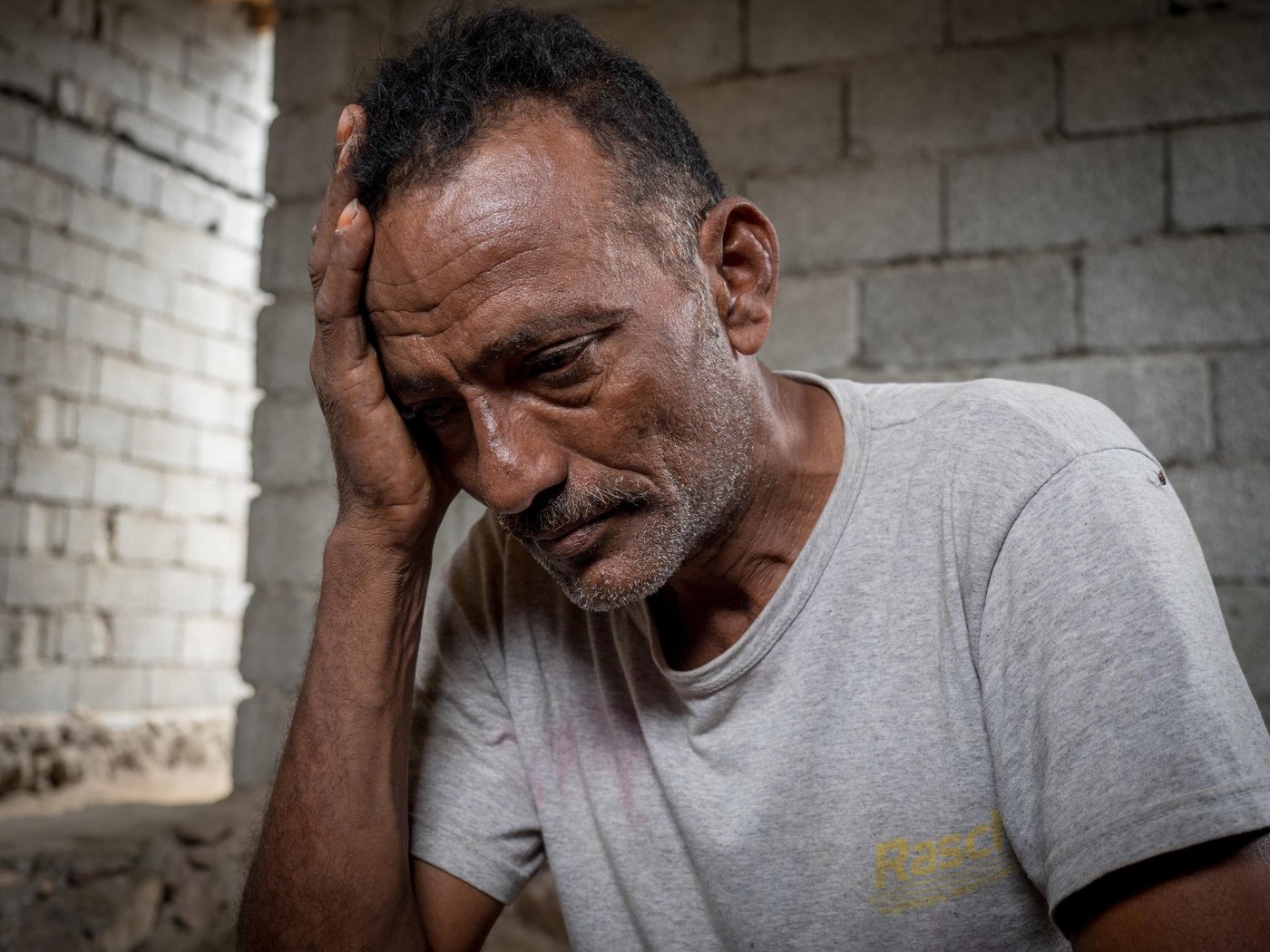For many Yemenis, life was already hard before the war, but the last five years have spelled disaster for millions. Many have lost their source of income, leaving them struggling to put food on the table. Prices keep going up while many civil servants in northern parts of the country haven’t received their salaries for four years.
As many as 3.65 million Yemenis have fled their homes because of the fighting, forcing them into further poverty and despair. And on top of this Yemen has experienced one of the world’s worst cholera outbreaks, compounded by a collapsing health system.
The following stories shed light on how ordinary Yemenis have lost everything, from relatives to their homes and sources of income, over the last five years.
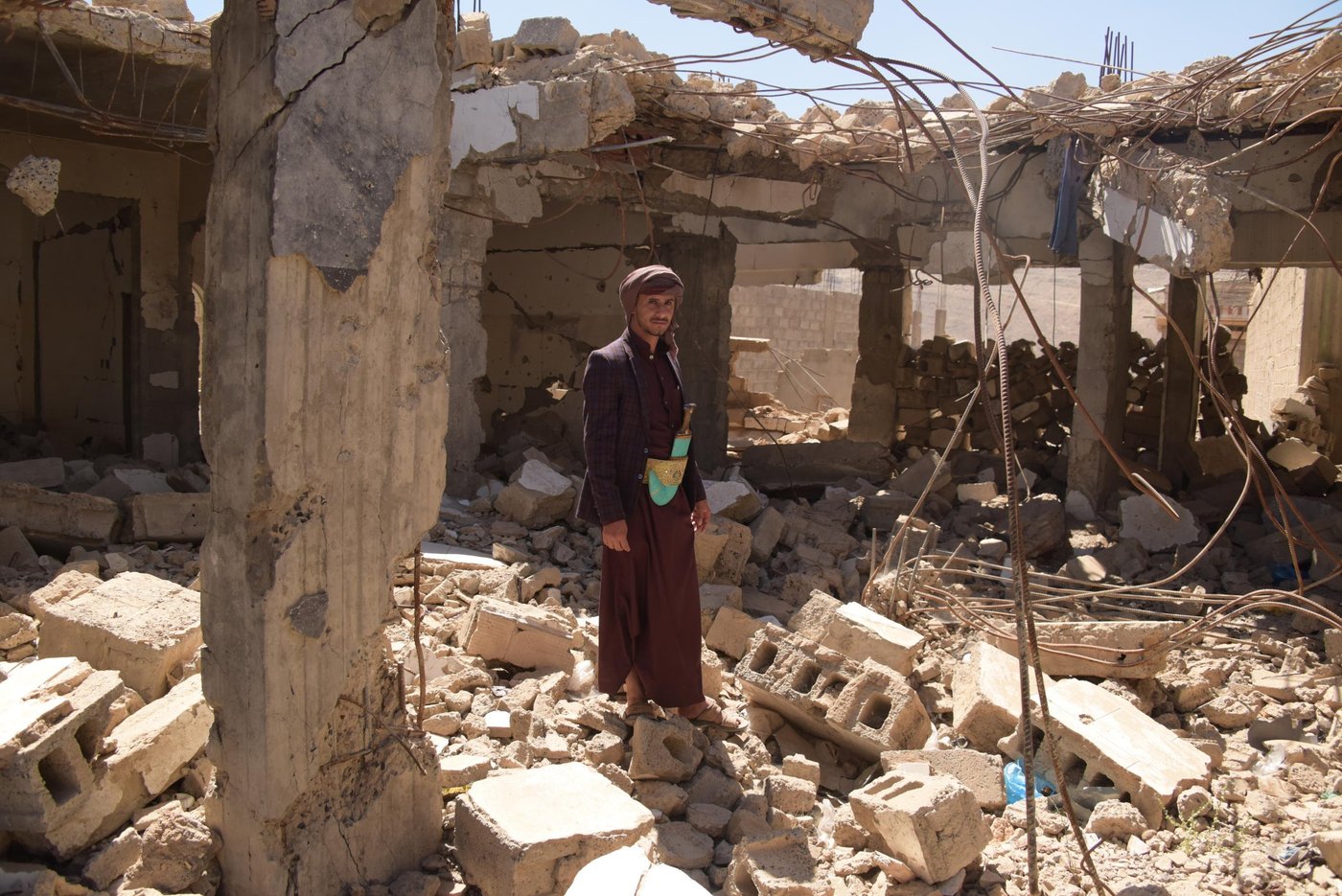
Mohammed Abdullah Al Tamerah lost two of his daughters, his mother, his brother and two sisters in an air strike on his house in Amran.
“I did not expect this. This is horrible, but the aggression is ruthless... it kills... as you can see that most of those who were killed are children and women.”
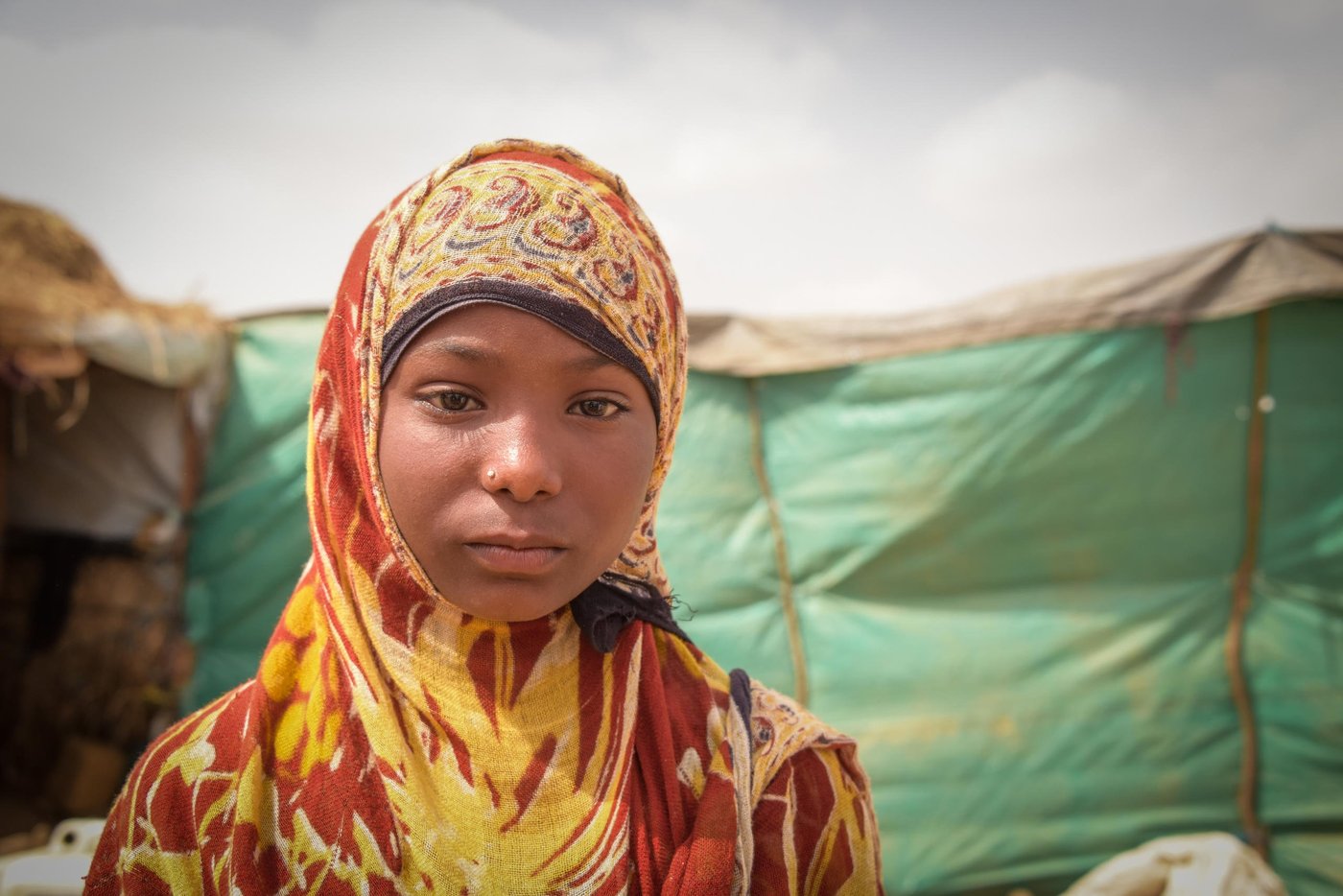
Haifa Ameen is 10 years old. She has been forced to flee with her family multiple times because of the fighting. She is currently living in a camp in Abs district.
"I used to go to school. But now I don’t go anymore. We can’t afford it. It was nice going to school. I felt smart. I was learning to read, but what can I do when my hands are empty? I wanted to be a teacher."
"I want to ask them to stop the war. What’s happening to us is so unfair, unfair for the children and for everybody. We would love to be just like other children outside Yemen, living in safety.”
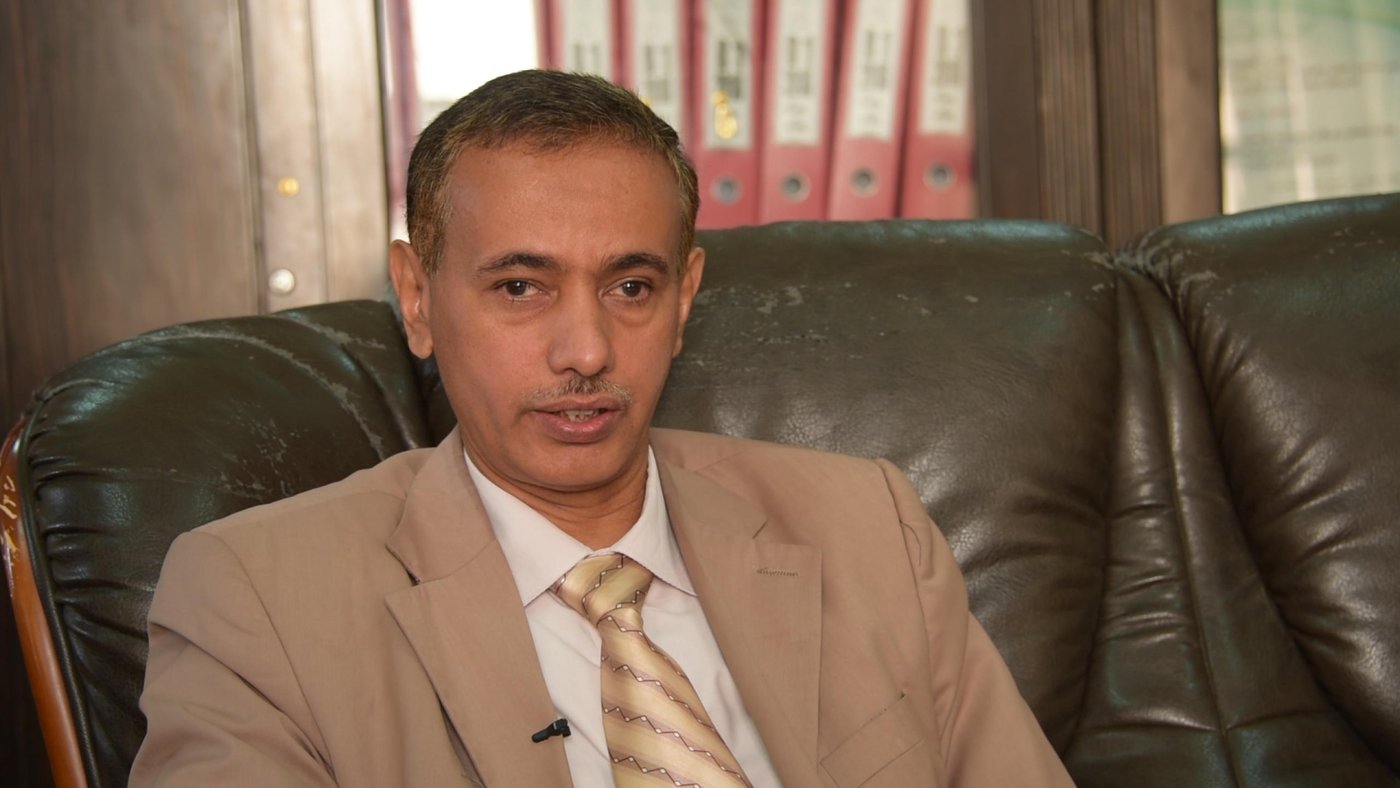
Dr Hamoud Hodeish is a paediatric oncologist at the cancer hospital in Sana'a. He describes the impact of the closure of Sana’a airport on children with cancer and the health system:
"The hospital is facing a lot of problems which include a lack of medical drugs, capacities and types of treatment. We cannot treat patients who need chemotherapy because of the current situation. It is very hard to import drugs. Radiotherapy machines have already collapsed. Our main problem now is the borders and the airport, and finding the easiest way to import."
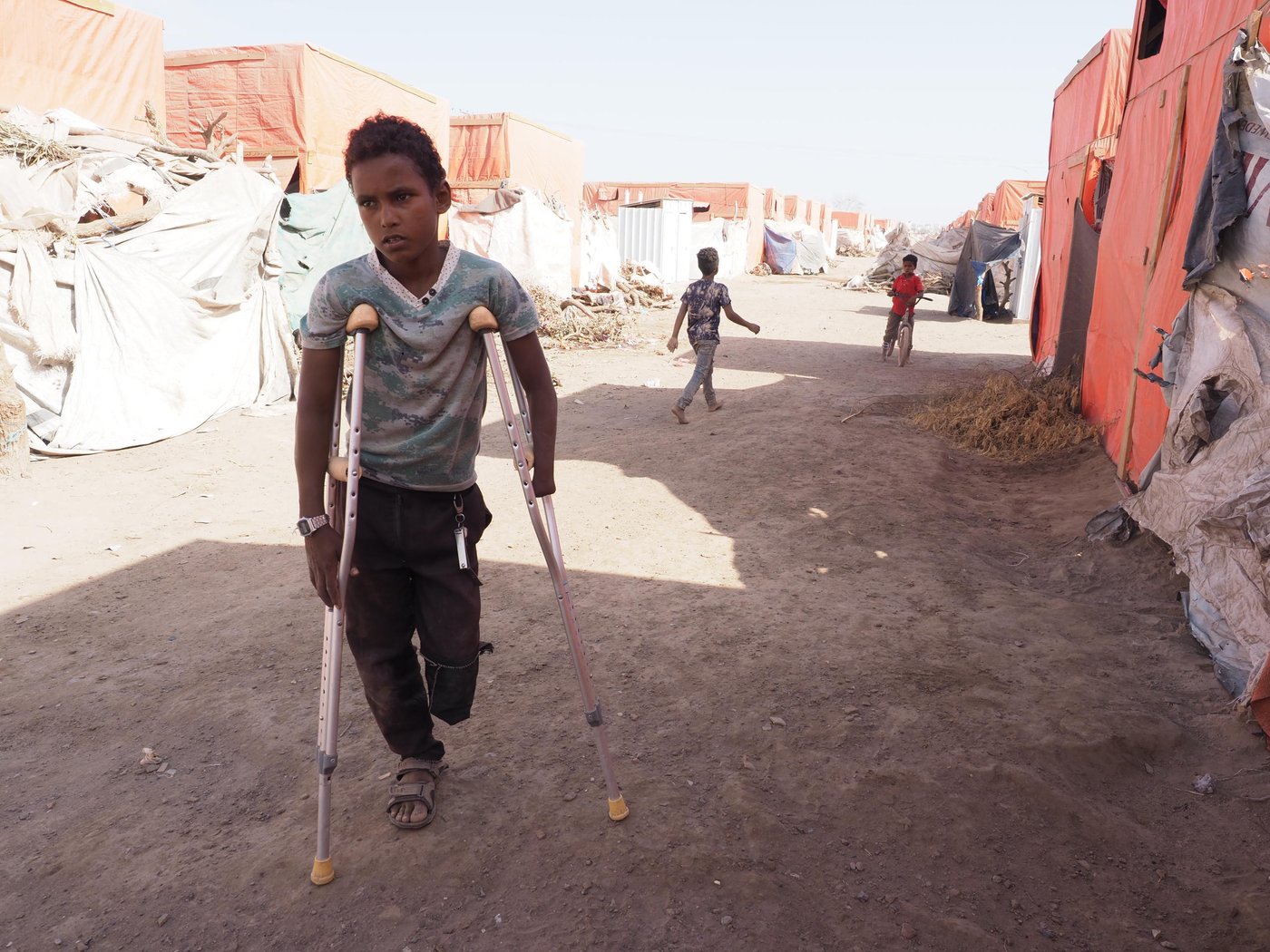
Salah, 13, fled from Taiz city because of the war, and now lives in Al-Mishqafa camp for internally displaced people in Lahj. One day, while he was out grazing his sheep along with two female relatives, one of the girls found a shell and brought it back with her. While they were playing Salah knocked on the shell. He didn't know that it would explode. It exploded on him and the two girls. He suffered injuries to his stomach, and one of his hands and a foot had to be amputated.
Salah misses his home, playing with his old friends, playing football and riding his bicycle.
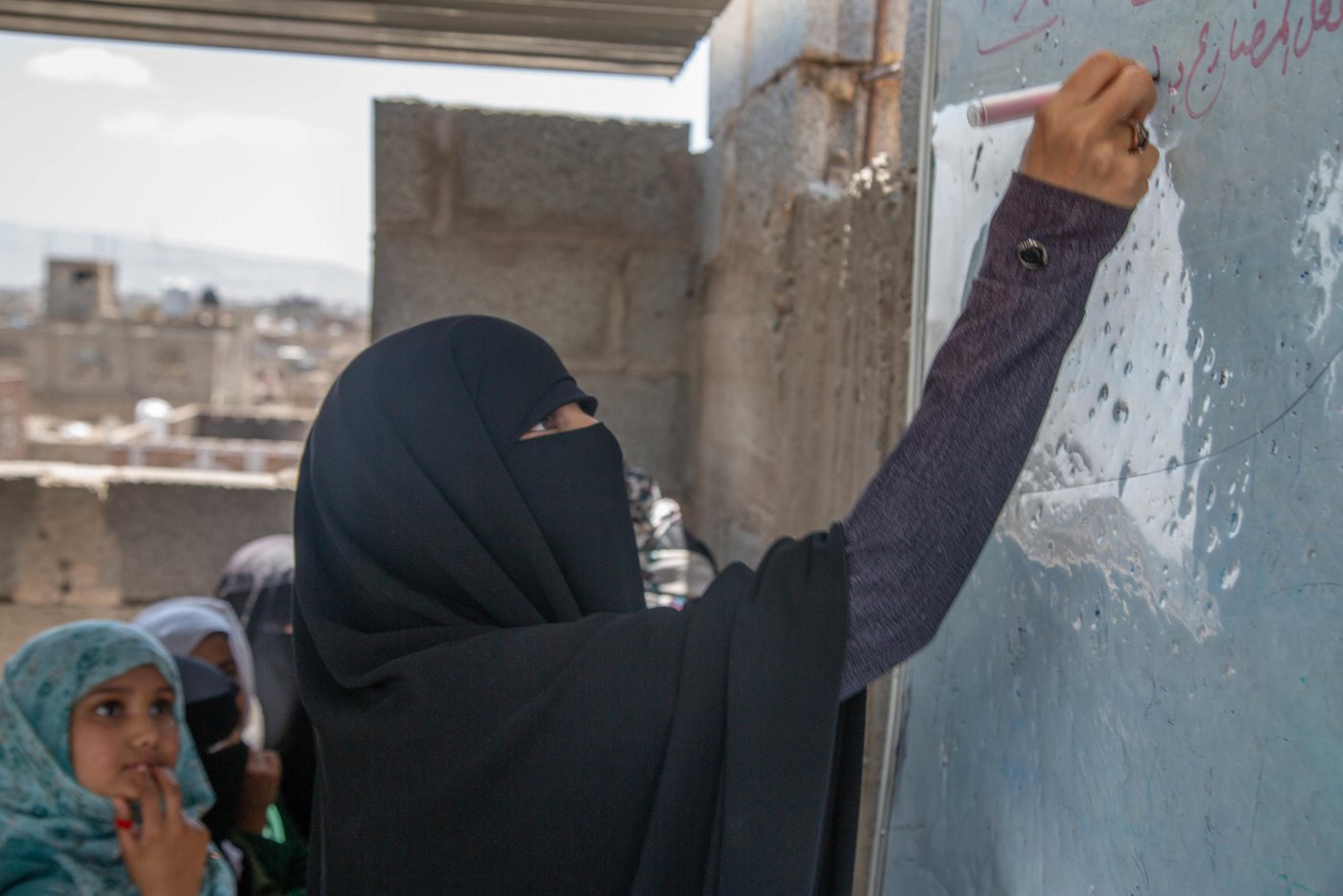
Rahma Ahmed is a 32-year old teacher at Yemen Al-Mustaqbal school in Sana’a’s Bani Al-Harith district. Her world was turned upside down when her pay was suddenly stopped three years ago. Before the conflict in Yemen began in 2015, she had a good life in the western city of Sana’a with her husband and son. Now she teaches for free and scrapes a living selling posters.
"Before the war we used to get a regular salary. It was quite low, but so were the prices. Now I sometimes borrow money to get my son a sandwich for breakfast or to buy school stationery. My motivation for coming to school is to educate and build the next generation."
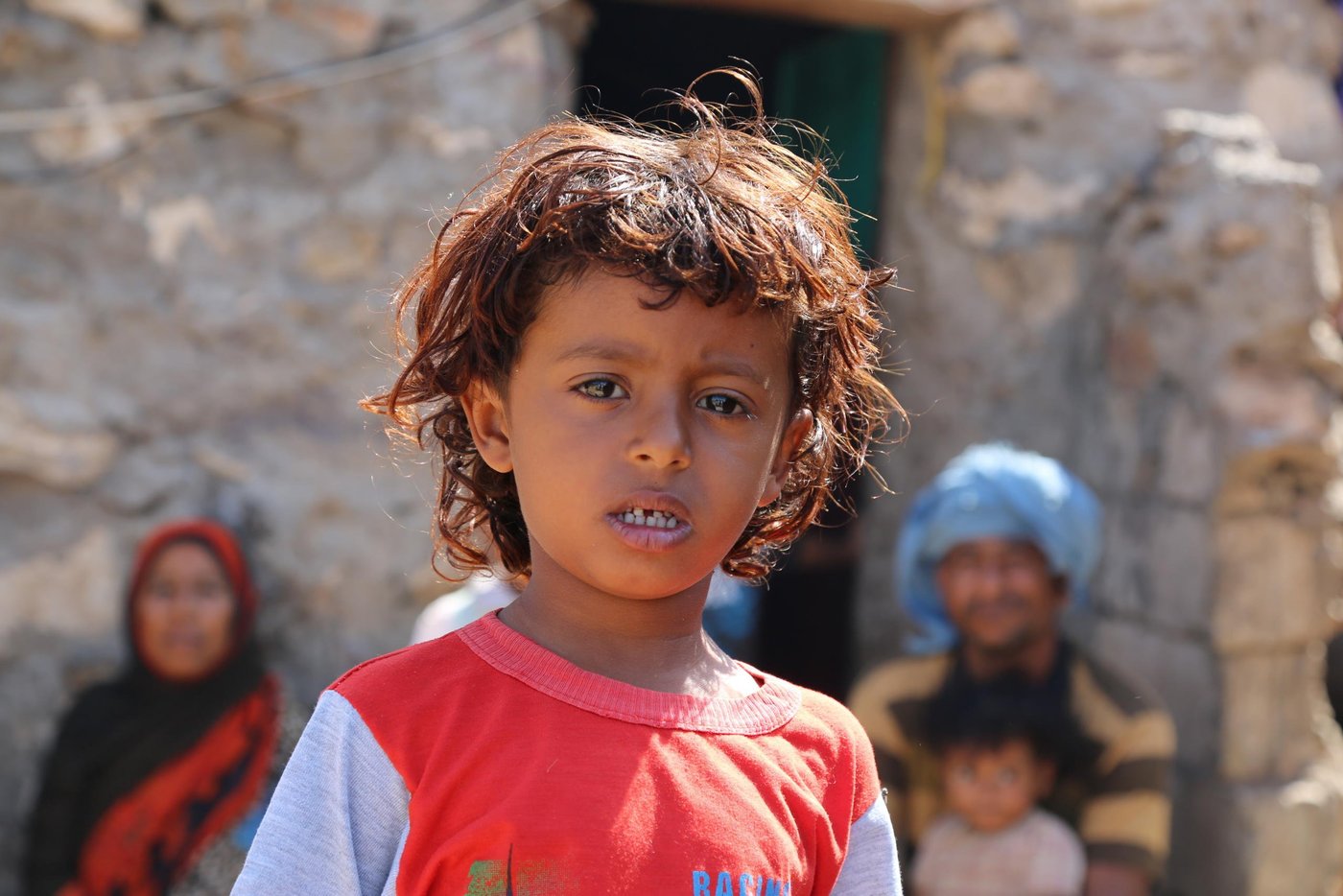
Misha’al Salah, 4, is a displaced child living in a tent in Taiz. He hears about his village but he doesn’t remember anything as his family fled when he was only one year old.
"People here say we have a house in our village. But I don’t remember it. I hope to live in our house one day."

Ghaleb Mohammed Al-Faqeeh, in his late 50s, is a father of 10. Besides his work as a farmer, Ghaleb used to own a car and a motorcycle which he used to transport goods from the city to residents in his village. But he lost everything when the war reached his village.
"My wife tried to go back to the village with our son to bring some belongings, but as they were entering the village they stepped on a landmine which exploded and killed them both. All my hopes were dashed after the death of my wife and son."

Thawreyah, 28, hasn't cooked with gas since she fled her house in 2017.
"Like all other women in this camp, I collect firewood from the mountains to cook, otherwise we stay hungry. We have been struggling in this camp and our children share this suffering with us. They go to school in the morning and then afterwards they go and collect firewood and water."

Geyad Ahmed, 6, is a student in first grade at primary school. He attends school in the mornings. Straight after school he goes to the mountain to collect firewood.
"I collect firewood every day to help my mother so she can cook for us."

Mohammed Al-Hawsali is in his 40s. He used to work as a land broker in Hodeida city. Before the conflict escalated he owned three houses.
"The shooting came from all directions and warplanes were hovering above us. The airstrikes targeted a house next to my three houses. Two of my properties were completely destroyed and can no longer be rented, and one was badly damaged. Those houses are all that I had. They were my life’s work."

Aboos Faisal, 13, was displaced from Hodeidah to Amran. She depends on collecting plastic bottles and selling them to recycling factories to bring in an income for her family.
"It is my dream to read and write but my father can't provide us with enough food. I have to work every day to help my family. Food is a priority for us. All my siblings work like me. There is no way to study."


